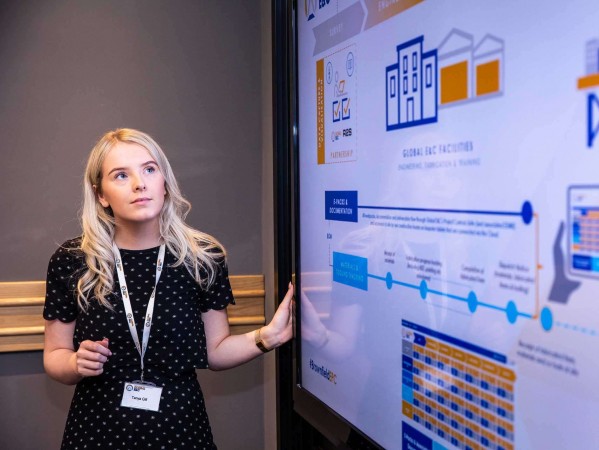Business & Innovation
Workforce Development
Ensuring you and/or your workforce has the right skills is critical in a fast evolving world. Whether you are looking for opportunities for yourself or your staff, find out what RGU can do for you.
At RGU, we offer a variety of courses on campus, on-site, online or by combination to support you and your team. Whether you are looking for short courses or postgraduate qualifications, to understand innovative industry processes or gain new skills we have the right industry-approved course or the ability to provide bespoke courses to suit your needs.
Our economic development is internationally recognised for its expertise in workforce analysis and skills planning for the energy sector.
For more information about workforce development courses available or how we can support you and your team, contact commercial@rgu.ac.uk

Undertaking an online RGU short course can help you to develop or change your career or support your business to grow.

Graduate Apprenticeships provide fully-funded structured training to degree level for employees – a great way to mould new recruits from the outset and/or upskill your staff to make your business more productive.

We’ve helped clients to test processes, create new products, upskill their workforce, introduce better practices, turn data into knowledge, engage with new communities and a lot more.

